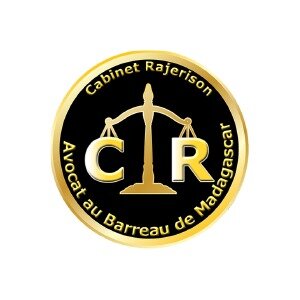Best Oil, Gas & Energy Lawyers in Madagascar
Share your needs with us, get contacted by law firms.
Free. Takes 2 min.
Or refine your search by selecting a city:
List of the best lawyers in Madagascar
About Oil, Gas & Energy Law in Madagascar
Madagascar, an island nation located off the southeastern coast of Africa, has emerged as a notable player in the oil, gas, and energy sectors due to its substantial natural resources. The country is endowed with a diverse range of resources, including oil reserves, natural gas fields, hydroelectric potential, and renewable energy opportunities. In recent years, there has been increased investment in exploring these resources, with both domestic and international companies involved in various projects. However, the sector is regulated by a complex framework of laws and regulations designed to manage exploration, production, environmental concerns, and resource ownership while promoting sustainable development.
Why You May Need a Lawyer
There are several scenarios in which individuals, businesses, or investors might require legal advice in the field of oil, gas, and energy in Madagascar. Common situations include:
- Negotiating contracts and agreements for exploration and production activities.
- Ensuring compliance with local regulatory and environmental laws.
- Resolving disputes related to land rights or resource usage.
- Dealing with government approvals and permits.
- Navigating tax implications and fiscal policies related to energy projects.
- Addressing issues related to social impact and community relations.
- Investing in or financing energy infrastructure projects.
Local Laws Overview
To effectively navigate the oil, gas, and energy sector in Madagascar, it's crucial to understand the key aspects of local laws:
- Petroleum Code: Governs the exploration, production, and transportation of hydrocarbons. It outlines the licensing requirements and stakeholder responsibilities.
- Environmental Law: Regulates the environmental impact of energy projects and sets forth obligations for environmental assessments and sustainability measures.
- Mining Code: Although primarily for mining, it impacts energy projects related to resource extraction, particularly oil sands and shale gas.
- Renewable Energy Policies: Include regulations and incentives aimed at promoting renewable energy development to enhance sustainability and reduce reliance on fossil fuels.
- Local Content Requirements: Mandate the involvement of local workforce and businesses in energy projects to foster economic growth and skills development.
Frequently Asked Questions
What are the major energy resources found in Madagascar?
Madagascar is rich in oil reserves, natural gas, and has significant potential for hydroelectric and renewable energy, including solar and wind.
How can a lawyer assist with energy project investments?
A lawyer can provide legal advice on contracts, ensure compliance with regulatory frameworks, and facilitate negotiations with government bodies.
What environmental regulations must be considered for energy projects?
Projects must adhere to environmental impact assessments, sustainability practices, and regulations set forth by the Environmental Law in Madagascar.
Are there opportunities for renewable energy development?
Yes, Madagascar has made advancements in renewable energy policies offering opportunities in solar, wind, and hydroelectric power.
What role do local content laws play in energy projects?
Local content laws require the inclusion of local labor and businesses, which helps boost the local economy and improve workforce skills.
How is land ownership handled for resource exploration?
Land rights and resource ownership are regulated by the government, requiring leases or agreements with landowners and adherence to legal frameworks.
What are the tax implications of investing in energy in Madagascar?
Investors must comply with Malagasy tax laws, which include specific fiscal policies for the energy sector and possible incentives for renewable investments.
Is it necessary to obtain government permits for energy projects?
Yes, government permits and approvals are mandatory for exploration, production, and development activities in the energy sector.
What are the common legal disputes in the oil, gas, and energy fields?
Common disputes include contract disagreements, land rights issues, regulatory compliance conflicts, and environmental litigation.
How does Madagascar promote sustainable energy development?
Through various incentives and a regulatory framework encouraging renewable energy and sustainable practices, Madagascar aims to balance economic growth and environmental stewardship.
Additional Resources
For further assistance, consider reaching out to the following resources:
- Ministry of Mines and Strategic Resources: The governmental body overseeing mining, energy, and resource management.
- Office Malgache des Hydrocarbures (OMH): Regulates the exploration and production of hydrocarbons.
- Environmental Protection Agency (EPA) of Madagascar: Provides guidelines and regulations on environmental protection and compliance.
- Chamber of Mines Madagascar: An industry organization that offers information and advocacy for mining and energy companies.
Next Steps
If you need legal assistance in the field of oil, gas, and energy in Madagascar, consider taking the following steps:
- Research and identify qualified legal professionals or firms specializing in energy law.
- Prepare detailed documentation of your situation, including contracts, correspondence, and project details.
- Schedule consultations to discuss your legal needs and potential strategies.
- Inquire about the lawyer's experience in the energy sector and familiarity with Madagascar's legal framework.
- Evaluate the legal advice provided and decide on the best course of action to protect your interests and comply with local laws.
Lawzana helps you find the best lawyers and law firms in Madagascar through a curated and pre-screened list of qualified legal professionals. Our platform offers rankings and detailed profiles of attorneys and law firms, allowing you to compare based on practice areas, including Oil, Gas & Energy, experience, and client feedback.
Each profile includes a description of the firm's areas of practice, client reviews, team members and partners, year of establishment, spoken languages, office locations, contact information, social media presence, and any published articles or resources. Most firms on our platform speak English and are experienced in both local and international legal matters.
Get a quote from top-rated law firms in Madagascar — quickly, securely, and without unnecessary hassle.
Disclaimer:
The information provided on this page is for general informational purposes only and does not constitute legal advice. While we strive to ensure the accuracy and relevance of the content, legal information may change over time, and interpretations of the law can vary. You should always consult with a qualified legal professional for advice specific to your situation.
We disclaim all liability for actions taken or not taken based on the content of this page. If you believe any information is incorrect or outdated, please contact us, and we will review and update it where appropriate.
Browse oil, gas & energy law firms by city in Madagascar
Refine your search by selecting a city.














